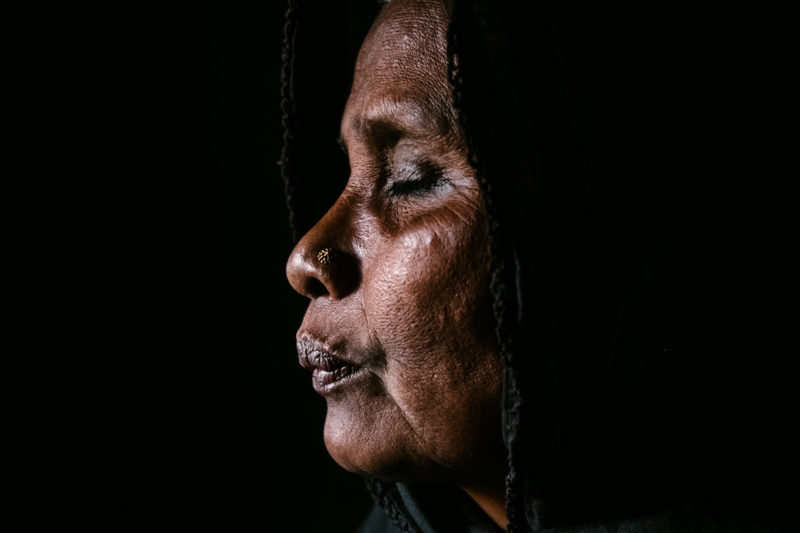[Winter 2022]
By Pierre Dessureault
[Excerpt]
“We are not in front of the images; we are in the middle of them. Like they are in the middle of us. The question is how we circulate among them, how we make them circulate.”1 The life of images, constantly relaunched in various presentation contexts, is core to Renaud Philippe’s humanist work on what is currently happening with the Rohingyas of Myanmar, both in his photojournalistic pieces, which appear in many dailies, and in his participation in the film Errance sans retour by Mélanie Carrier and Olivier Higgins and in the exhibition of the same name organized at the Musée national des beaux-arts du Québec (MNBAQ).2 First, his photo report on the Rohingyas, refugees forced into exile in Bangladesh due to the religious persecution that they suffer in their home country, paints a complex portrait that synthesizes the question through his consequential application of photographs and words. Then, the film plunges viewers into daily life in the camp where these uprooted people are crowded together, featuring a diversity of narrations by flesh-and-blood people, who, through what they say about their experiences and their gestures captured within the moving images over time, disrupt the opinions of the orthodoxy. By establishing a community of heterogeneous images in which Philippe’s photographs and filmed images cohabit with children’s drawings, oral accounts, artefacts, a sound environment, and a diorama by the artist Karine Giboulo, the exhibition creates a space that opens time for reflection and triggers a process that submits certainties to the scrutiny of critical judgment and debate.
For more than fifteen years, Philippe has produced photo reports on current events in Sudan, Haiti, India, Nepal, Thailand, Kenya, Pakistan, and Canada. The constant in this documentary work is the fate of human beings placed by history in extreme conditions. It is not natural catastrophes or political conflicts in themselves that interest him but the collective tragedies that these events engender. Following the same principle as for his other reports, in which familiarity with the subject and field research are essential, Philippe spent three weeks in the Kutupalong camp, in Bangladesh, in January 2018. The camp, which, with an area of thirteen square kilometres, is the largest in the world, contains seven hundred thousand exiled Rohingyas living in utter destitution…
Translated by Käthe Roth
2 Errance sans retour was directed by Mélanie Carrier and Olivier Higgins and produced by MÖ FILMS, in collaboration with Renaud Philippe. It was presented May 14 2021 to February 20, 2022.
[ Complete issue, in print and digital version, available here: Ciel variable 119 – AGAINST NATURE ]
[ Complete article and more images, in digital version, available here: Errance Sans Retour, “They also killed my father” — Pierre Dessureault ]

